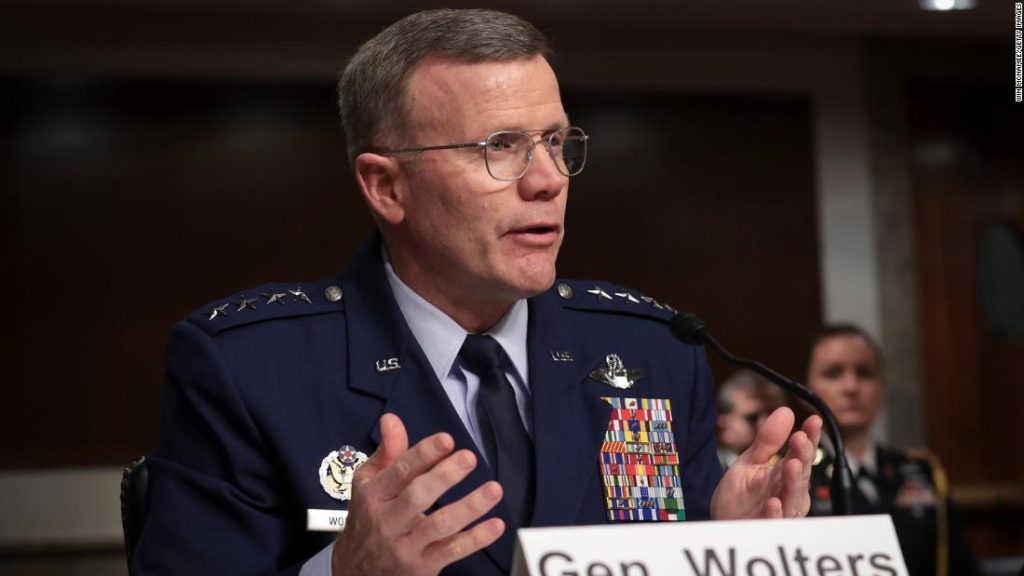
When Russia launched its invasion of Ukraine last month, US intelligence estimated that a nationwide attack could bring Kyiv to Russia within days. But the Russian military is bogged down around the capital as the war enters its second month, besieged by sustainability and logistical problems, along with unexpected stiff resistance from Ukrainian fighters.
Testifying at a Senate Armed Services Committee hearing on Tuesday, US European Command chief General Todd Walters was asked by Senator Roger Wicker, a Republican from Mississippi, whether there was an intelligence gap that caused the United States to overestimate Russia’s strength and underestimate Ukrainian defenses. .
“There could be,” replied Walters. “As we have always done in the past, when this crisis is over, we will do a thorough after-action review across all areas and in all departments and find our weaknesses and make sure we can find ways to improve, and this could be one of those areas.”
At a time when US intelligence was concerned in predicting that Russia was planning an invasion of Ukraine—something that the Biden administration aggressively launched to shift global sentiment against the Kremlin—the intelligence community did not assess the poor performance of the Russian military.
US and NATO allies continued to help resupply the Ukrainian army with weapons, including Javelin anti-tank missiles and Stinger anti-aircraft missiles used against Russian forces. While estimates vary widely, sources familiar with the estimates say that thousands of Russian soldiers have been killed in the conflict. US officials say they have anecdotal evidence of morale problems in the Russian military.
At a Senate Intelligence Committee hearing earlier this month, Director of National Intelligence Avril Haines said the US intelligence community assessed that Russian President Vladimir Putin was underestimating the potential resistance he might face from the Ukrainians prior to the invasion.
“I think we did well there,” she said. We did not do a good job in terms of predicting the military challenges he faced with his army.”
Lieutenant General Scott Perrier, the head of the Defense Intelligence Agency, said US intelligence assessments before the invasion were based on a number of factors, including that the Ukrainians “were not as prepared as I thought.”
“Therefore, I doubted their willingness to fight. This was a poor evaluation on my part, because they fought with courage and honor and are doing the right thing,” he said.
Asked by Arkansas Republican Senator Tom Cotton about assessments about how long Kyiv would hold or how long Ukraine could maintain its air defenses, Perrier said the intelligence community “made some assumptions about (Putin’s) assumptions, which proved highly flawed. “
“His actual activity when he went into this fight kind of turned his operation on its head,” Brier said of Putin. “And what we’ve seen is a transfer, if you will, of the operations that he’s doing now.”

“Travel specialist. Typical social media scholar. Friend of animals everywhere. Freelance zombie ninja. Twitter buff.”





More Stories
Taiwan is preparing to face strong Typhoon Kung-ri
Israel orders residents of Baalbek, eastern Lebanon, to evacuate
Zelensky: North Korean forces are pushing the war with Russia “beyond the borders”